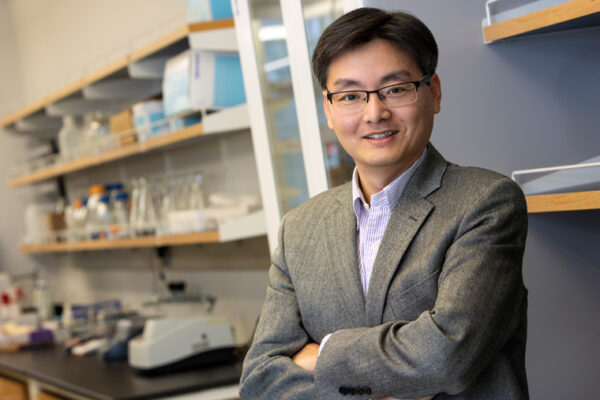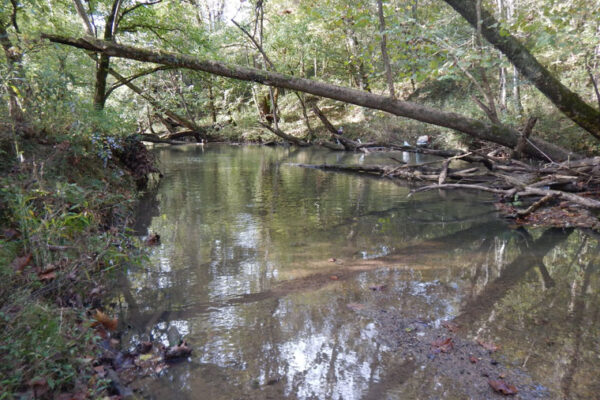A novel technology for using bioremediation to clean chemical pollutants has been developed by a collaborative team that includes Joshua Yuan, chair and professor of energy, environmental and chemical engineering at Washington University in St. Louis’ McKelvey School of Engineering.

The material has the potential for commercial application for disposing of per- and polyfluoroalkyl substances or PFAS, also known as “forever chemicals.” A certain type of firefighting foam — used to put out gasoline fires, among others — is one of the more notorious sources of PFAS. These substances can threaten human health and ecosystem sustainability when released into the environment.
Published July 28 in the journal Nature Communications, the research was a collaboration between Yuan and Susie Dai, associate professor at the Texas A&M Department of Plant Pathology and Microbiology and Bioenvironmental Sciences Program.
“This is a new concept of treatment train integration,” said Yuan, former director of the Synthetic and Systems Biology Innovation Hub at Texas A&M. An expert in biomaterial and bioprocess design, Yuan contributed to the design of the new plant-based material, which absorbs PFAS. The combined materials can then be fed to a microbial fungus.
Read more on the the Texas A&M website.


